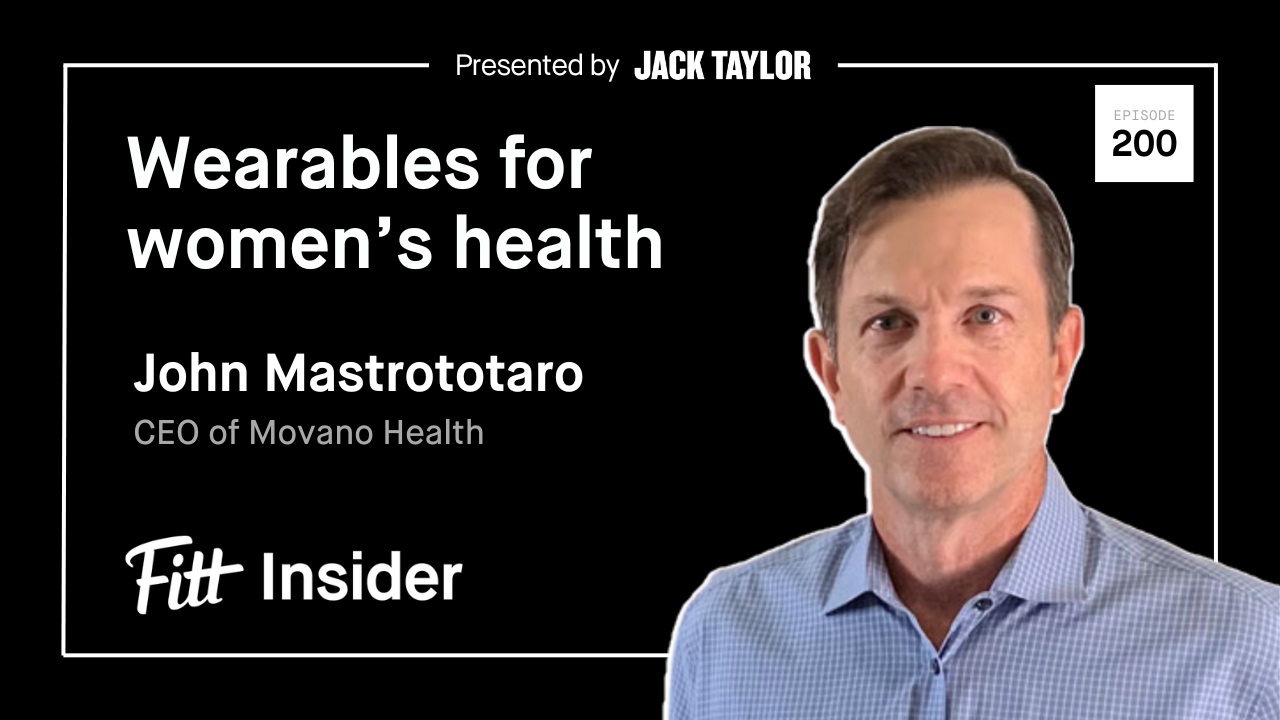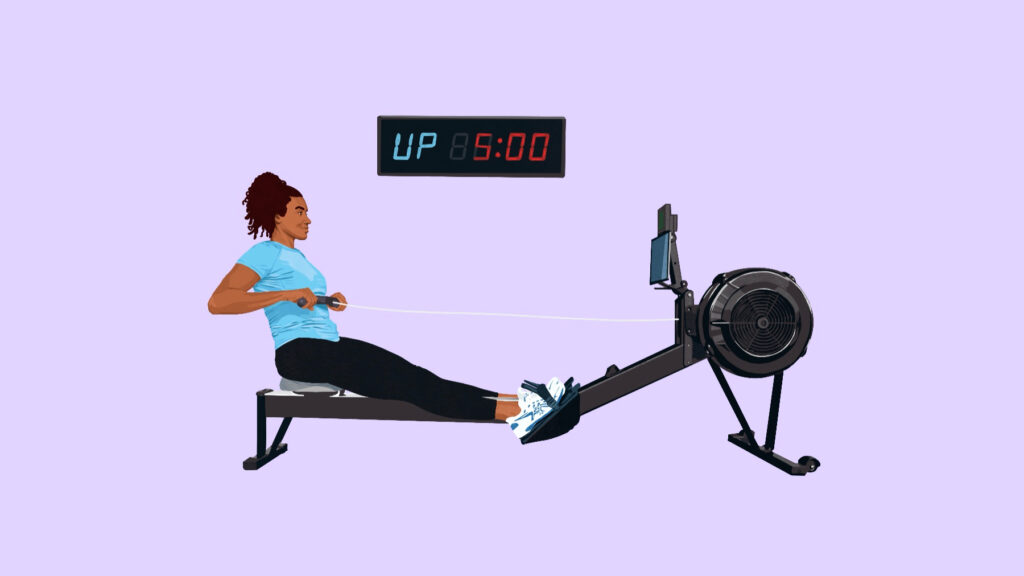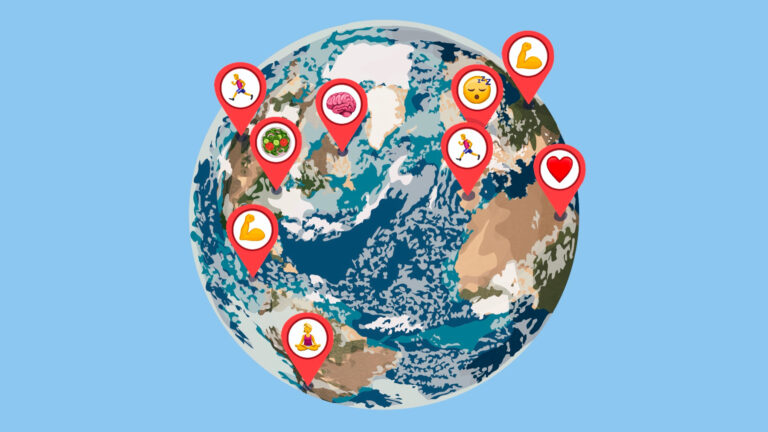
When it comes to exercise, every little bit counts.
Stuck in Place
The benefits of physical activity are almost endless.
Setting a healthy baseline, the CDC recommends 150 minutes of moderate-intensity physical activity and two days of strength training per week. But, most people don’t come close.
- More than 70% of US adults fail to meet the combined physical activity and strength training benchmark.
- 25.3% of Americans are completely sedentary, not completing any physical activity outside their job in the past month.
- Among high-income nations, 70% of future healthcare costs will be spent on illnesses caused by inactivity.
Complicating matters, as Big Pharma advances “miracle” weight loss prescriptions at a breakneck pace, 45% of all American adults say they’d be interested in taking them.
Simple science. While the search for a magic bullet continues, the not-so-secret solution may be right in front of us. According to longevity scientist Dr. Peter Attia, exercise is the “most potent drug” for improving health and longevity.
Adding complexity to sell solutions, fitness brands risk losing the plot — mainly that physical activity in all its forms has been shown to curb chronic diseases like obesity, hypertension, and diabetes but also cancer, depression, Alzheimer’s, and more.
Microdosing Fitness
Despite the many benefits, time remains one of the biggest barriers to exercise. But, it’s becoming more clear that even a few minutes of movement goes a long way.
- Just 3.4 minutes per day of vigorous lifestyle physical activity (like climbing stairs or fast walking) led to a ~17% decrease in cancer incidence; 4.5 minutes translated to ~31%.
- 30–60 minutes of strength training per week reduces all-cause mortality by 10–17%, with additional inverse links to CVD, diabetes, and some cancers.
- 20 minutes of physical activity yields a 43% drop in the risk of developing depression, while exercise was found to be 1.5x more effective than leading antidepressants.
Even the vaunted 10K steps per day rule is getting rolled back, with 2.3K steps improving heart health and 4K shown to reduce the risk of all-cause mortality.
Getting a boost, if employers encouraged their workforce to walk an extra 15 minutes per day (~2K steps), the global economy would gain $100B from improved productivity and life expectancy.
Hungry for results. Short on time and attention, many exercisers want bite-sized workouts that deliver fast results.
On the Fitt Insider Podcast, Hydrow CEO Bruce Smith spoke to the shift, saying: “There’s a hunger for things that are efficient. Time is the most valuable commodity we’ve got…”
While social media influencers, like Nike trainer Joe Holder, use short-form video to popularize “exercise snacks,” fitness brands are compressing workouts to keep time-strapped members engaged.
Among the many digital options, obé recently launched “stackable” 10-minute workouts, and Nike Training Club’s content partnership with Netflix produced ~30 high-efficiency HIIT classes, with more on the way.
High-efficiency. Smashing the 45-minute benchmark set by brands like F45 Training, rowing workouts from connected equipment company Hydrow and studio concepts like Row House work 86% of the body’s muscles in a 20-minute workout.
All in on hyper-condensed 35-minute workouts, Self Esteem Brands is scaling its US-focused Basecamp Fitness franchise while launching SUMHIIT Fitness internationally.
TBD. It’s too soon to tell if efficacy and efficiency align, but franchise sales are stacking up for EMS studios like OHM and BODY20, continuous-resistance strength studios The Exercise Coach and fit20, and infrared sauna fitness concept Hotworx.
Meanwhile, biohacking-born Vasper is selling its systems to Bulletproof, Exos, and other optimization hubs.
Takeaway: Whether it’s walking more, exercise snacking, or prescribing exercise, any effort to promote physical activity is a step in the right direction — but it doesn’t have to be complicated. In the words of Harvard professor of evolutionary biology Dr. Daniel Lieberman: “Any movement is an improvement on none, more is usually better, and it is never too late to start.”
🎙 On the Podcast

Movano Health CEO John Mastrototaro discusses the future of noninvasive health monitoring.
We also cover: the company’s planned rollout of women’s health-focused smart ring Evie and the shift from wellness wearables to medical devices.
Listen to today’s episode here
🥗 Gen Z is stressed about healthy food
According to a new Ketchum report, Gen Z wants to eat healthier, but it’s complicated.
- 60% feel scrutinized to eat healthy, causing the majority of women to feel less comfortable in their bodies.
- While the majority of Gen Zers find social media anxiety-inducing, 70% still follow food influencers.
- Despite 72% saying sustainability and animal welfare are important, less than 16% actually make purchase decisions around those values.
Mixed up. Torn between social responsibility and saving money, 62% of Gen Zers believe their eating patterns are “wrong,” fueling food anxiety.
Unwilling to pay a premium for plant-based, non-GMO, sustainably sourced eats, they still look to Big Food to supply their favorite snacks.
Money well spent. But, they’re willing to splurge on brands that make healthy choices easier and more exciting.
- Seafood company Fishwife stood out by rebranding tinned fish as protein-packed, European-chic dinner fare, riding TikTok’s “girl dinner” trend.
- YouTuber MrBeast’s chocolate and candy company Feastables sells gluten-free and low-sugar snacks by gamifying the consumer experience with stunts and giveaways alongside every product drop.
- Leveraging the power of influencer-fan relationships, Mediterranean food chain CAVA won over Gen Z through a collab with YouTuber Emma Chamberlain.
Of note… while all the brands boast better-for-you properties, none made it the focal point of their messaging, choosing instead to underscore a sense of healthy hedonism.
Punchline: For health-conscious CPG startups, sustainability and a strong social presence are table stakes but aren’t significant selling points. Instead, Gen Z is reserving its discretionary dollars for bold brands that, by way of novelty or nostalgia, bring joy to the table.
💸 Viome adds $86.5M for at-home microbiome tests
As the lab shifts from the hospital to the home, Viome’s new funding will accelerate its preventative health roadmap.
Having raised $175M to date, the latest tranche coincides with a distribution deal putting its Gut Intelligence Test in 200 CVS stores, and a recent foray into oral health.
Test from home. During the pandemic, convenient DIY diagnostics became the default, driving demand for preventative tests.
Riding growing interest in gut health, Viome is expanding beyond microbiome analysis to offer solutions for longevity and anti-aging.
Meanwhile, the $5B DTC wellness testing market is growing crowded.
- 2021: At-home test makers LetsGetChecked and Everly Health earned valuations in the billions during an unprecedented pandemic boom.
- 2022: Clinic-focused Quest Diagnostics expanded beyond traditional healthcare with the launch of DTC blood tests for performance and wellness.
- 2023: Targeting personalized nutrition and healthspan optimization, Elo Health and Lifeforce raised funding for kits combining blood tests and precision supplementation.
But… at-home tests aren’t a sure thing. Diagnostics company Cue Health has struggled since its 2021 IPO, laying off staff while debuting wellness tests.
And despite increased funding and attention, the science of the microbiome is still nascent, raising questions about claims made by Viome and its competitors. Absent regulation, the onus is on startups to prove consumer wellness test kits are reliable.
Punchline: Consumers like the convenience of at-home health tests — and companies have taken note. But the validity and usefulness of some DTC products are still up for debate.
📰 News & Notes
- Peloton retools B2B effort, targets office gyms and hotels.
- Albertsons adds nutrition insights to Sincerely Health app.
- DICK’S Sporting Goods lays off 250 following down quarter.
- FORME prepares to buy an unnamed connected fitness rival.
- 89% of sports supplements inaccurately declare ingredients.
- Fitt Jobs: Simplify your job search with our curated openings in health & fitness.
- Spring Health unveils self-guided stress courses for managers. [Re-read: No Days Off]
- Les Mills launches co-created sculpt workout with adidas. [Re-read: The Rise of Sculpt]
💰 Money Moves
- Viome, an at-home microbiome test company, added $86.5M in an oversubscribed Series C led by Khosla Ventures and Bold Capital.
- Visana Health, a women’s health platform that includes behavioral health services, raised a $10.1M seed round co-led by Flare Capital Partners and Frist Cressey Ventures.
- Miami-based preventative health and longevity platform Longevo raised $5.5M in a funding round.
- Plant-based energy drink maker Yerbaé raised $4M from unnamed celebrity investors.
- Cancer patient support platform Thyme Care secured $60M in a Series B round co-led by Town Hall Ventures and Foresite Capital.
- COMPASS Pathways, a psychedelic biotech company, entered a securities purchase agreement of $125M, including a potential additional $160M.
- AI analytics company SportsVisio raised $3M in a seed round led by Sapphire Ventures.
- Arccos Golf, creator of an on-course tracking system and other AI products, raised $20M in a Series C led by the PGA Tour.
- Hidden River Strategic Capital and Taurus Capital Partners acquired seven locations of children’s movement-based learning center The Little Gym.
- Digital health insurance marketplace Venteur secured $7.6M in a seed round led by GSR Ventures.
- Pregnancy care company Nuvo plans to go public after merging with SPAC LAMF Global Ventures Corp. I.
Today’s newsletter was brought to you by Anthony Vennare, Joe Vennare, Ryan Deer, and Jasmina Breen.






